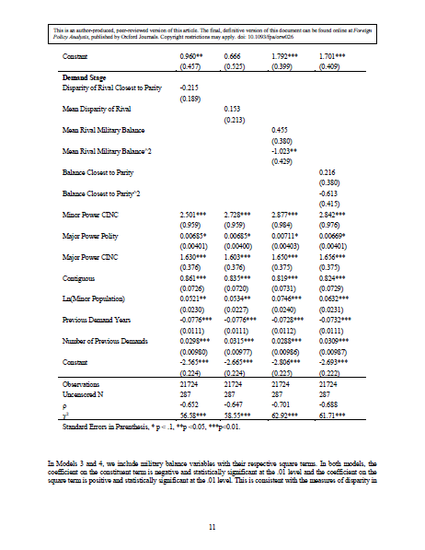
Why do minor powers ever resist the demands of major powers? While recent work has begun to provide answers to this question, we argue that research has missed a vital piece of bargaining dynamics in dyadic research: third party influence. Using spatial modeling techniques for the Militarized Interstate Dispute and International Crisis Behavior datasets, we improve upon previous models of asymmetric conflict by showing that the presence of a neighboring rival of a minor power, and the relationship that rival has with a major power, conditions the likelihood that weak actors choose to fight the strong. The recent examples of Pakistan and Iraq, after the 9/11 terrorist attacks in the United States, serve as ideal types in which minor powers are respectively less and more likely to resist the demands of major powers. We find quantitative support that regional rivalry can act as both constrainers and enablers for minor powers when bargaining with major powers.
This is an author-produced, peer-reviewed version of this article. The final, definitive version of this document can be found online at Foreign Policy Analysis, published by Oxford Academic. Copyright restrictions may apply. doi: 10.1093/fpa/orw026
Available at: http://works.bepress.com/michael_aallen/11/
